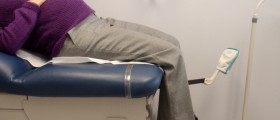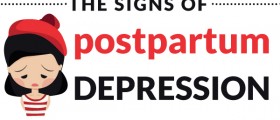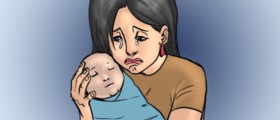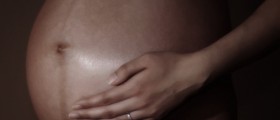Depression during and after pregnancy is not at all uncommon, despite what many people think. Depending on which sources you look at, 10 to 20 percent of pregnant or post-partum mothers will experience depression. Sadly, when you are depressed, it can be extremely difficult to speak out and get the help that you so desperately need. That is why screening for maternal perinatal depression could be of great assistance to many women. Screening for prenatal or
postpartum depression signs is not a routine part of prenatal care yet, but studies have shown that screening could be very effective in determining which women are depressed or at risk of depression. Early detection of depression, either during pregnancy and in the post-partum period, has many obvious benefits. For mothers, getting treatment as soon as possible could prevent them from feeling isolated and helpless for months on end. Babies, who can be at risk of neglect or abuse in some severe cases of depression, could also obviously benefit from maternal perinatal depression symptoms.
Screening for maternal perinatal depression could furthermore normalize depression enough to take the stigma out of it, and help women seek help earlier. According to studies, risk factors of depression during pregnancy or after birth include a history of depression, a lack of social support during pregnancy and in the newborn stage, an infant with colic, child care stress and marital problems. Having Post Traumatic Stress Syndrome, being single, having been a victim of violence or abuse, and having low confidence as a parent are also risk factors. Physical causes of depression can include thyroid problems, going on the birth control pill soon after birth, or other hormonal disturbances. What do you think about this? Should screening for depression be a routine part of prenatal care? If this was offered to you, would you be willing to take part? For those who want to read more about the subject of depression, we recommend our articles about prenatal depression symptoms, and prenatal depression in men.


















Your thoughts on this
Loading...